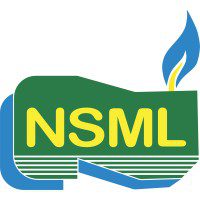
NSML, Temile ink agreement for management of 23,000cm LPG vessel
NLNG Shipping and Marine Services Limited (NSML) Temile Development Company Limited on Tuesday, signed a Vessel Management Agreement (VMA) to provide comprehensive vessel technical management services for the new 23,000 cubic metre LPG vessel, LPG Alfred Temile 10, owned by Temile Development Company Limited.
At a ceremony in Abuja, NSML’s Managing Director and Chief Executive Officer, Mr. Abdulkadir Ahmed, and Temile’s Chief Executive Officer, Mr. Alfred Temile, signed the VMA. Present at the signing ceremony were Adegboyega Oyetola, Minister of Marine and Blue Economy, represented by Mrs Ekanem Ogegere Celia, Deputy Director, Cabotage and Shipping; Engr. Felix Omatsola Ogbe, the Executive Secretary, Nigerian Content Development & Monitoring Board; Mr. Andy Odeh, General Manager, External Relations and Sustainable Development; Dr. Salihu Jamari, Chief Investment Officer, NNPC Gas & Power Investment Services, among others.
Speaking at the milestone event, NSML’s MD, Mr. Ahmed, emphasised that NSML will leverage its expertise and resources to ensure the safe, reliable, and efficient operation of the Alfred Temile 10. He stated that the relationship with Temile Development Company started with the delivery of the first LPG vessel – LPG Alfred Temile – to NLNG in 2020.
“The relationship grew and continued with the construction, supervision and delivery of the 2nd LPG Vessel – Alfred Temile 10 – to Nigeria in March 2024. This momentous occasion represents our shared commitment to excellence, safety, and innovation in the maritime industry. It also represents the tenacious can-do-spirit of Mr Alfred Temile who has grown his LPG vessel fleet within a span of four (4) years. The Alfed Temile 10 is a testament to our dedication to operating a modern, efficient, and environmentally responsible fleet. With its cutting-edge design and technology, this vessel will set a new standard for LPG transportation in Nigeria and the West Africa,” he said.
Also speaking at the event, Mr. Temile, stressed that the new vessel will play a critical role in gas transportation in Nigeria, enhancing the company’s capacity to deliver high-quality services while adhering to the highest standards of safety and environmental stewardship.
“We are confident that this partnership will set a new benchmark in the industry, and we are excited about the opportunities that lie ahead. As we embark on this new chapter, we also anticipate further strategic investment decisions including a third gas carrier later this year, demonstrating our commitment to deliver sustainable growth and value to our shareholders and Nigeria,” he added.
The keynote speaker, Engr. Felix Ogbe, commended NSML and Temile Development Company for partnering together. He stressed that there was ample human capacity, resources and tenacity in-country to achieve great feats, calling for increased collaboration and cooperation in the maritime industry.




